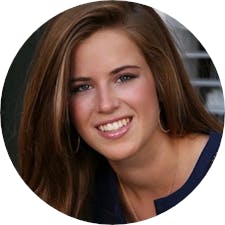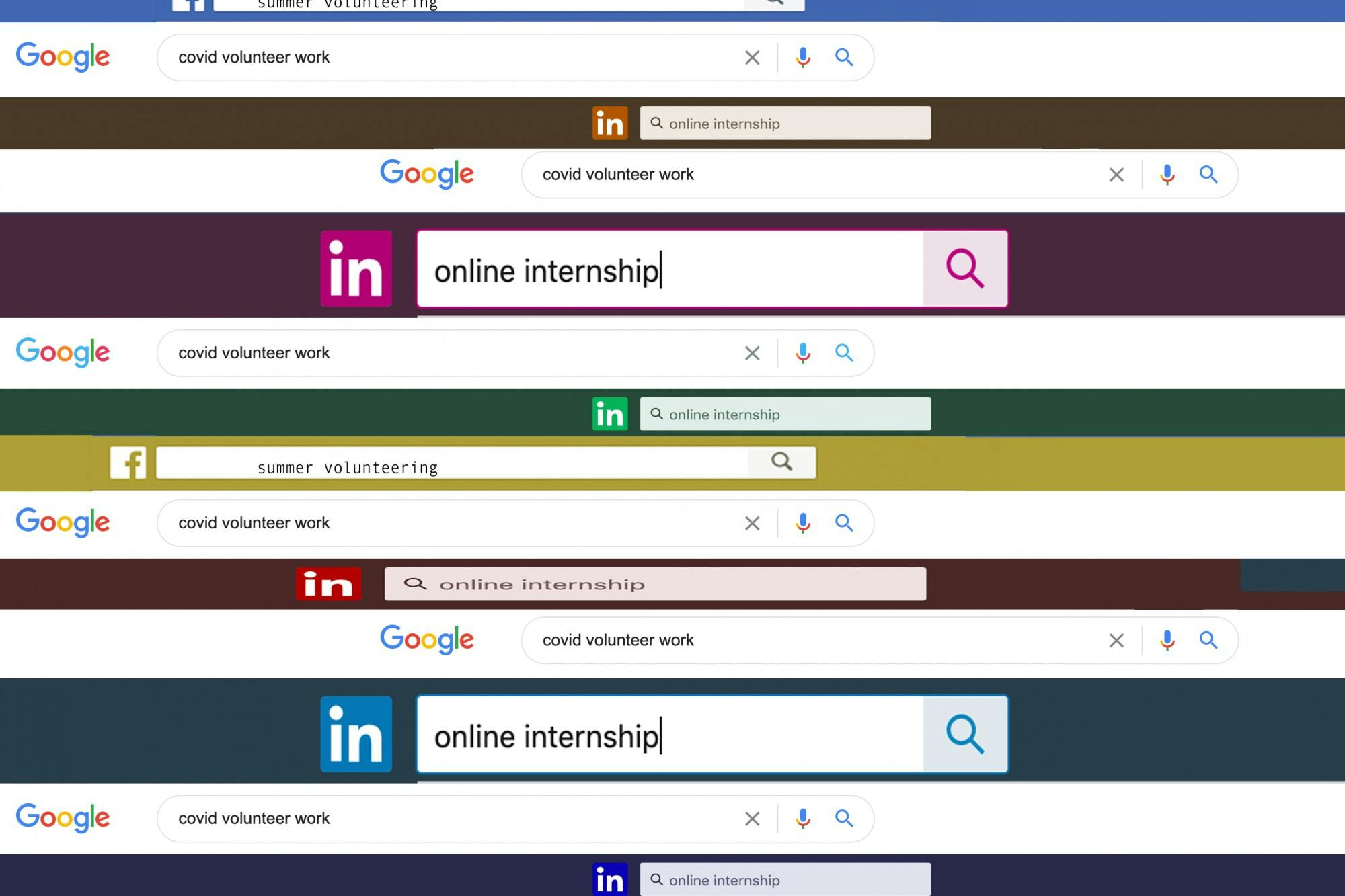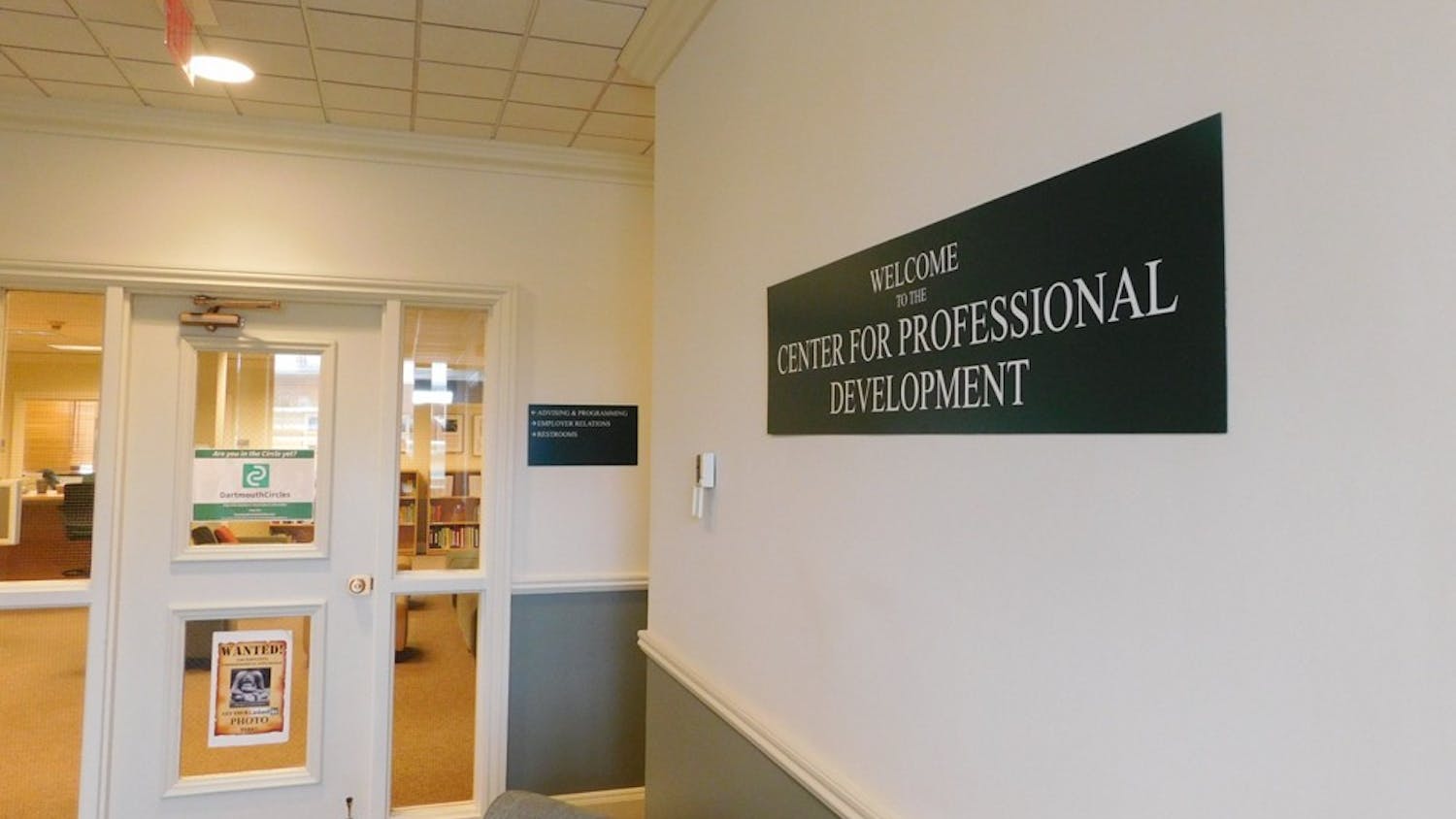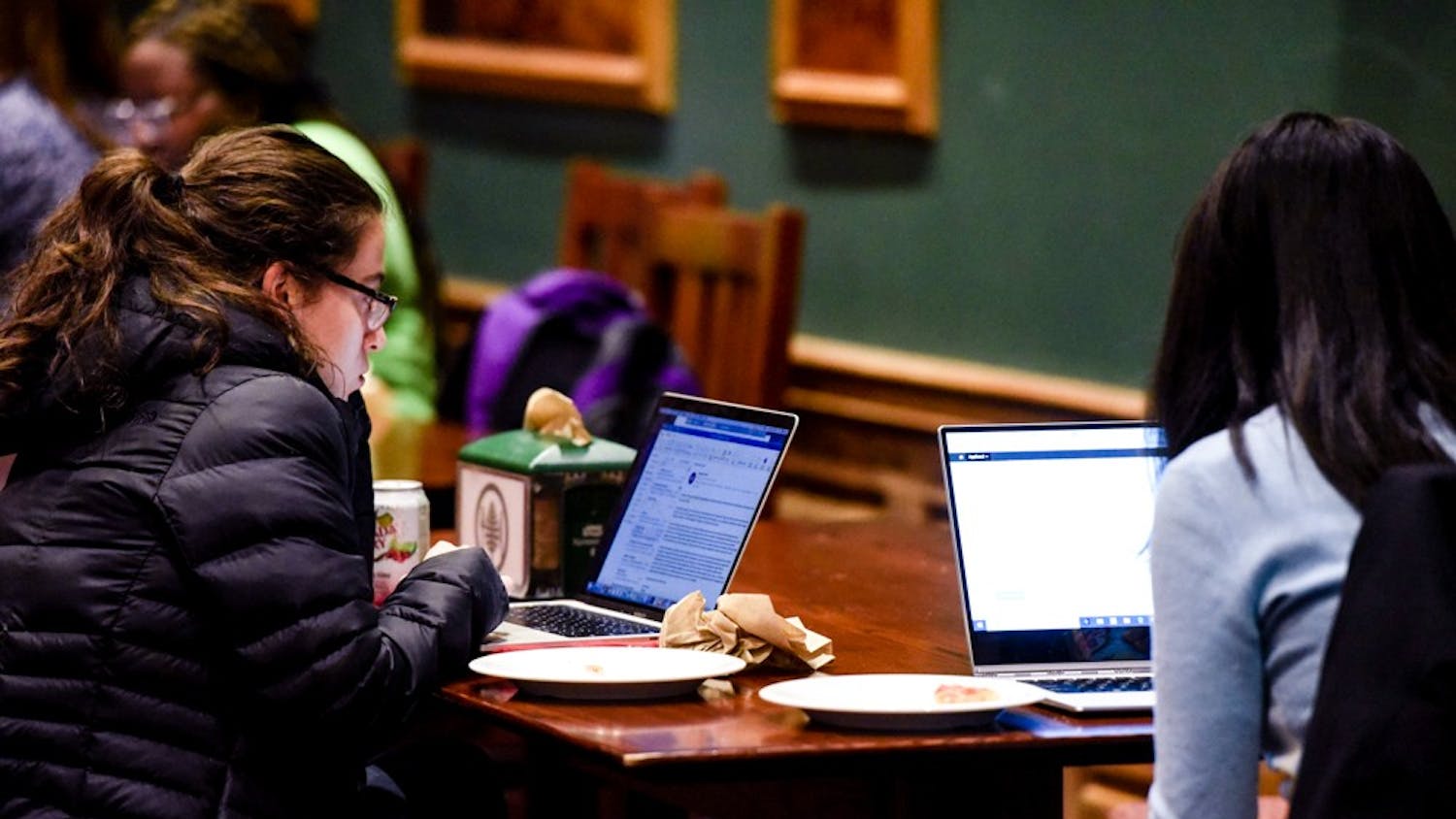I hesitate before I open DartBoard. Navigating the present is hard enough, and grappling with an uncertain future is daunting. Clicking the center of the DartBoard bullseye, I see “Attention!” written in bold, bright red letters at the top of the screen. I brace for bad news. We all know these announcements too well now: The COVID-19 notices on Instagram and Facebook and the popup panels on websites always bear unsettling information. But this one is different. Beneath “Attention!” I read, “Seeking a job or internship? These sites are sharing new postings daily.”
As my eyes drift down the page, they settle on a tile for a workshop titled “6 Employers Who Hire for Writing Skills.” I accidentally smile as I click to register for the event.
I asked Monica Wilson, interim director of the Center Professional Development, about the resources currently offered on DartBoard. She said that since the start of the pandemic, the CPD has created brief guides for remote work and internships, networking, new internship opportunities and career workshops, all adjusted to help students plan for the “new normal.”
“We can’t collect everything and get it into the system, but we can be a facilitator — a conduit — for students, and that’s what we are trying to do,” Wilson said. “We monitor consortia websites where we see what’s going on all the time. We are talking to a lot of other career centers, and we are talking to employers every day about what’s happening out there.”
I also spoke with assistant director Franzi Gibbs, a CPD “coach” — a new title that Gibbs feels captures the enthusiasm of the CPD staff. As we joked about how she had to adjust to giving career advice from her bedroom, I realized that Gibbs is passionate about helping students delineate prospective internships and career paths.
Right now, Gibbs is working to help sophomores find ways to build their resumes through internships that will either supplement or replace online classes this summer. She explained that when she meets with students, they discuss financial needs, time constraints and career preparation, then they build an experiential schedule for the summer.
“Being able to do that with students, in my experience, makes students feel like they have agency when they thought they didn’t, and they can be creative when they thought there was no room for it. They see that there is a path — or paths — forward. And I think [these schedules] might not always be the most amazing thing you’ve ever thought, but it’s something. And that might be the slogan for this whole lockdown: It’s something.”
I also talked to other Dartmouth students to see how they are planning for the summer. Annmarie Allos ’23 had planned to participate in the Italian Full Immersion in Rome Experience language study abroad. The program was canceled a couple weeks into this term, which Allos is spending in her hometown of Nashville, Tennessee.
“I am trying to do research, although I originally did not want to do research over the summer,” Allos said. “But I think that remote research is one of the few things I can try and do.”
It’s not that Allos doesn’t enjoy research — she has worked in various labs throughout high school and college. But because research is familiar to her, she wanted a wholly different experience this summer.
Allos has begun to look into another idea that would allow her to expand her horizons this summer: She recently emailed a doctor in Jordan to see if there was a way that she could go there to do service work. While she has family in Jordan and would have a place to stay, she doesn't know how to speak Arabic. Additionally, Jordan is on lockdown right now, so it is unclear whether travel would be feasible. Regardless, she is clearly excited about the idea.
Although her immediate plans have changed, Allos is making the most of things and hopes to participate in a study abroad later in her Dartmouth career.
Similarly, Alayah Johnson-Jennings ’21 planned to spend her junior summer in Washington, D.C. after she was accepted into the Udall Foundation’s Native American Congressional Internship Program, which has now been postponed until next year. The new dates would interfere with the final weeks of her senior spring and interrupt her graduation. Johnson-Jennings said that she needed the internship to gain a sense of direction for her future.
“I feel like my whole post-grad plan has been moved,” Johnson-Jennings said. “I am feeling it even now. Am I going to study for the LSAT this summer or the GRE? Am I interested in a JD or a PhD? What am I looking at for grad school?”
Johnson-Jennings has experience in public health and education, but she has never worked in law. In particular, she is interested in pursuing federal Indian law, and she believes the Udall Foundation program could have given her the experience necessary to make an informed decision about her immediate post-college trajectory.
For now, she is mulling over the decision, but she has downloaded an app to prepare for the GRE while home in Saskatoon, Saskatchewan.
Luke Amen ’21, however, is trying to acquire housing in Detroit this summer, as his in-person internship has not been canceled. Amen will be working for an engineering company that specializes in making parts for trucks.
“I found a few Airbnbs that are either an apartment or a full house that are pretty cheap because nobody is renting Airbnbs right now. Most of the places have been empty for one or two months,” Amen said, explaining why he feels comfortable renting during the pandemic.
After driving about six hours from his home near Chicago to Detroit, Amen will have to navigate starting a new internship and acclimating to the new workplace safety regulations.
“The company is considered somewhat essential,” Amen said. “It isn’t a huge company personnel-wise, so they have been able to keep people apart and make sure that everyone is following the guidelines put in place.”
Amen continues to check the company’s website and is happy to see updates about how they have been maintaining safe work conditions.
Although they remain hopeful, Allos, Amen and Johnson-Jennings are all frustrated with their summer internship adjustments. All three worry about the implications for their futures and the feeling of lost opportunity.
I asked Gibbs about how she dealt with these student frustrations.
“All of us are trained listeners. That is what we do — be that in-person, over the phone or over Zoom,” Gibbs said.
This term, most CPD appointments have been booked by sophomores and juniors — not seniors. Wilson has worked with the CPD since the recession in 2008, and she reminded me that the ’20s are not the first class to graduate into a struggling job market.
“We did a big town hall event for seniors during the last recession,” Wilson said. “Curiously, we had a number of students come to our event, but they seemed discouraged before they got there, and it was hard to get them to engage with the job search.”
The future is dotted with question marks, and whether searching for full-time work or summer internships, many college students are reeling from changes to their career plans. For some, even taking the first step of scheduling a CPD appointment can feel overwhelming.
I’ve been thinking about what Gibbs said about making meaning during the pandemic: No matter what you do, “It’s something.” That “something” might be downloading a GRE app on your phone or returning to the research you loved and left behind in high school. It might be taking a free course on LinkedIn or finding a new hobby. No matter how you plan your summer, taking steps toward a future career might help reverse the feeling that time is standing still.





